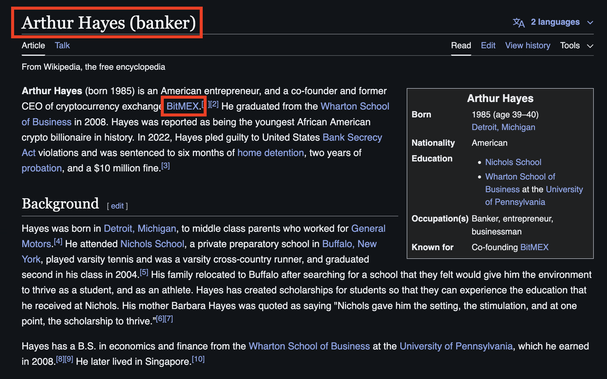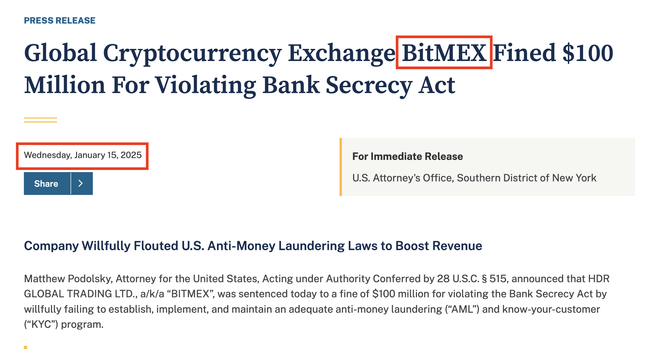Warning Signs For AAVE: Price Could Drop 8% Soon https://cryptonews24.eu/2025/06/investment/featured/warning-signs-for-aave-price-could-drop-8-soon.html
An AAVE whale purchased $15M of the altcoin after its fall to the $239-mark. This decline was observed as a value entry, with AAVE surging by 10% soon after. This happened before the crypto went down again at the time of writing. #AAVE
#AAVE
📊 Sell in May and go away? Not this time!
Crypto stayed strong - Bitcoin hit a new all-time high, Ethereum surged after the Pectra upgrade and Hyperliquid set new records. We summarize the biggest moves of the month here: https://auriccrypto.com/analysis/marketanalysis/sell-in-may-and-go-away-not-this-time/
💰 La Fundación #Ethereum ha ejecutado un préstamo de 2 millones de dólares en la #stablecoin $GHO de #Aave, utilizando $ETH como garantía.
Esto supone un cambio respecto al mecanismo habitual para obtener financiación, que es vender $ETH.
AAVE hits $260 after an 80% surge - but is the rally losing steam?
RSI, MFI, and Bollinger Bands suggest overbought conditions, and volatility is rising - yet other signals remain bullish. We break down the signals here: https://auriccrypto.com/analysis/technicalanalysis/aave-at-260-has-the-bull-run-gone-too-far/
"Ay yo son, is that your mans? He buggging and he got you and your squad looking craaaazy out here, nahmean?"
is a real sentiment that happens across cultures and platforms.
That's not #AAVE exclusive even if the phrasing is.
🔎 #AAVE Aptos Geçişiyle Yüzde 30 Ralli Bekleniyor
🔸 AAVE, Aptos zincirine geçiş yaparak işlem hızını artırmayı hedefliyor.
🔸 Artan likidite ve kullanıcı sayısıyla AAVE fiyatında yükseliş öngörülüyor.
🔎 #AAVE’nin Psikolojik Döngüsü: Duygular Fiyata Nasıl Yön Veriyor?
🔸 AAVE fiyatındaki düşüş, yatırımcıların psikolojik evrelerini gözler önüne seriyor.
🔸 Yatırımcılar, coşku döneminden depresyon dönemine geçiş yapmış durumda.
Is it cultural appropriation when drag slang & AAVE words enter the mainstream? 🤔 Babbel's article dives into the complex relationship between language, subcultures, and power dynamics. Explore the evolution & potential pitfalls of adopting slang from marginalized communities. 💬 #CulturalAppropriation #AAVE #DragSlang #LanguageEvolution #culture
🔗 https://www.babbel.com/en/magazine/cultural-appropriation-drag-slang-aave
Sometimes non-native speakers of English see certain phrases, such as "Imma be," being used by native speakers, and assume this is just modern English slang, available to anyone. But many of these usages are specifically #AAVE (African American Vernacular English), and if you are not #Black and you use these, you might be criticized for #CulturalAppropriation. The mistake is of course an innocent mistake, but that doesn't mean you aren't accountable at all. When you learn that a particular phrase (such as "Imma be") is AAVE and are called out, apologize, say you didn't know, and stop using it. Don't become defensive and try to argue that it's okay for you to use it because [reasons].
Today, thanks to YouTube comments, I learned this word.
Urban Dictionary: malding
When someone is expressing a large magnitude of rage, often over something relatively small, that the stress they are giving upon themselves causes their hair to fall out (thus, balding). Portemanteau of "mad" and "balding".
if you are white and posting in #AAVE i will not call you out i will simply mute you forever wake the fuck up
Da #MakerDAO a #Aave, #Compound, #Uniswap, #YearnFinance, #CurveFinance, #SushiSwap, #Synthetix, #Balancer, a #Bancor, l'ecosistema #DeFi ed il settore finanziario!💰 Ricordate di fare ricerca e ponderare i rischi. #blockchain #innovazione
https://t.co/k1n4uwfUfs
Today’s linguistic rabbit hole is the uninflected copula (“be”) and how it is used differently in African American Vernacular English and Pirate Speak.
In AAVE, “be” is, among other things, a marker of habitual behaviour. “I be going to town” may indicate that the speaker routinely and frequently goes to town, and might not be happening right at the moment of utterance. AAVE has a rich range of concise grammatical markers for tense and aspect which Standard English instead uses wordy circumlocutions for. https://en.wikipedia.org/wiki/African-American_Vernacular_English#Tense_and_aspect
In Pirate Speak, which is fabricated largely from English West Country dialect, “be” is usually a drop-in replacement for inflected “am”, “are”, “is”, and has no grammatical meaning. “I be going to town” is a statement of current intention or state, and exactly corresponds to “I am going to town” in Standard English. https://en.wikipedia.org/wiki/West_Country_English#Grammar
Surely it's just a coincidence that the Trump affiliated #WorldLibertyFi is "investing" tens of millions of dollars in #JustinSun and #ArthurHayes tokens mere days after:
1. #BitMEX was fined $100mm by DOJ for money laundering
2. Justin Sun bought 50% of #WLFI, the #WorldLibertyFinancial "governance token", for $75 million
Also remember that because morons see what #WorldLibertyFinancial is doing as "Trump's investments" they tend to immediately pile into those tokens.
In other words they just turned the presidency of the united states into a pump and dump factory the likes of which humanity has never seen.
#Trump #DonaldTrump #JDVance #uspol #uspolitics #politics #GOP #MAGA #crypto #cryptocurrency #AAVE #LINK #ENA #Ethena #crime #corruption #fraud #WLFI
The Best Accent in America, Black English and the Habitual Be
https://youtu.be/vFEi_3cZyr0



